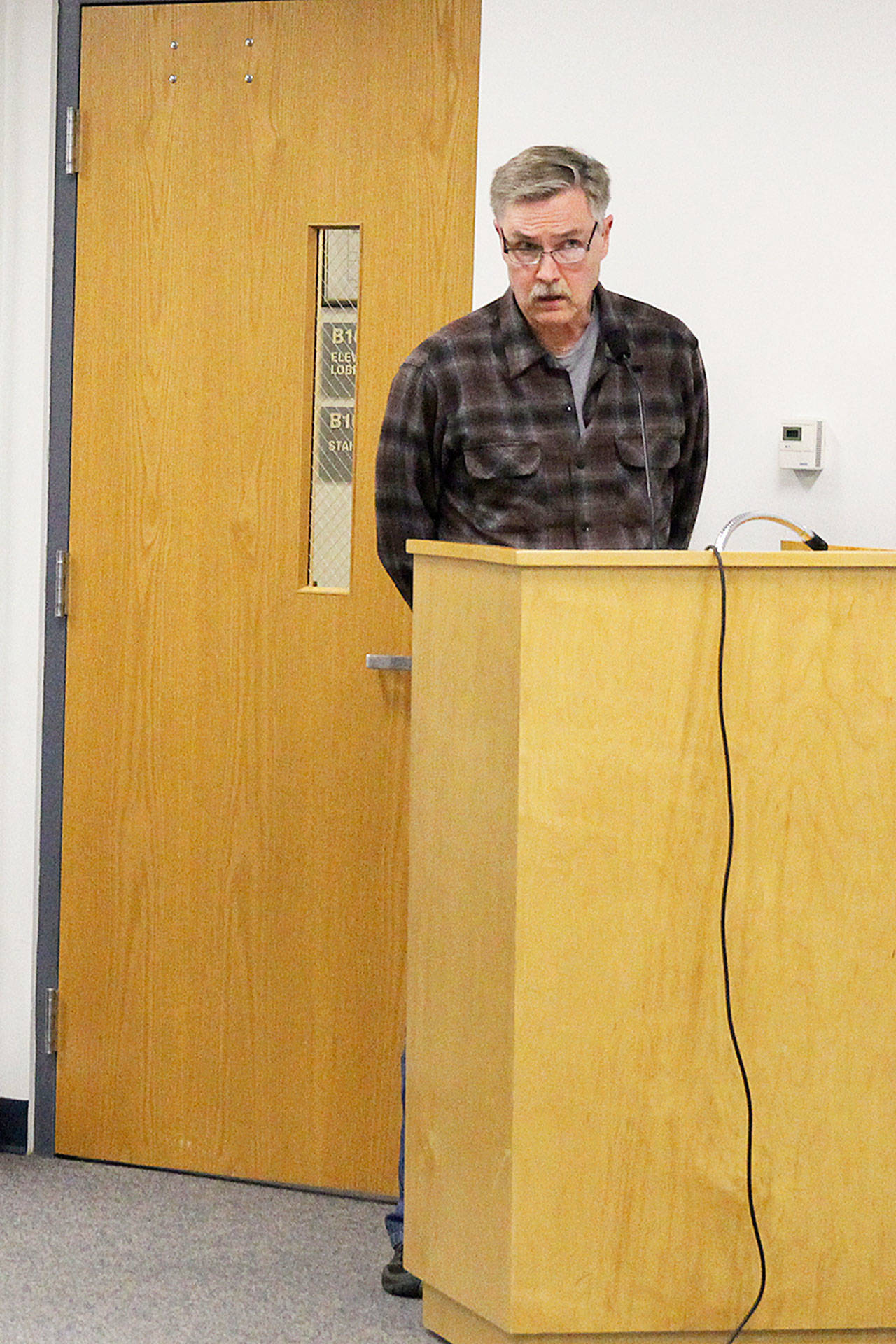One of the final public hearings on an overhaul of rural event regulations in the county became increasingly personal.
Conversations in support of and against one particular winery dominated public comment, which lasted more than two hours and included accusations of slander, “catfighting” between neighbors and the labeling of a group of residents as “reclusive malcontents.” Around nine people, not including its owners, spoke in direct support of the winery and three suggested it had too much of a negative impact.
Darin Hand, planning commission chairman, asked several times throughout the Nov. 19 meeting for the public to maintain decorum.
Despite the chairman’s repeated suggestions to bring forward only “new comments,” most of the arguments regarding the proposed regulations were sentiments that have been expressed many times during the code development process that’s lasted over a year.
However, one new topic did come forward among the discussion. One man asked that rural event centers, which are permitted for the highest level of activity in the code, be allowed on land zoned rural forest. Currently, rural event centers are only allowed in areas zoned rural and rural agriculture. The planning commission also recently proposed allowing the facilities, which are buildings exclusively used for events, be allowed in areas zoned commercial agriculture.
Paal Cammermeyer told the commission he and his son Tim Cammermeyer wanted to create an event center with a “Pacific Northwest forest motif” and assured the members forest management activities would not happen at the same time as events.
There are a number of restrictions on rural forest zoned land already, Assistant Planning Director Bevery Mesa Zendt said.
The commission’s recommended regulations will be passed on the Island County commissioners, who will have another public hearing before the code is adopted.
The 30-page document includes setback, noise mitigation, access and frequency standards for three levels of permitted events.
Special events can be large-scale events, such as a harvest festival or marathon, that happen no more than three times a year, according to the draft. Most standards for these are determined on a case-by-case basis.
Rural commercial events, which is the new category under the proposed code, allows for 10 or fewer events per year.
Gatherings of 50 or fewer people would be considered exempt and up to five charitable events can be held in addition to the 10 a year.
Small workshops and educational events also don’t count toward the 10 allowed.
No one who spoke at the meeting, attended by around 30 people, were in favor of the code exactly as written.
Each person said it was either too restrictive or not nearly restrictive enough.
Almost all the public comment came from neighbors of the Comforts of Whidbey winery in Langley. Those is support of it said the business positively impacted the neighborhood and the economy with its events and should be allowed to do more than 10 per year.
Mike Holota, who has been a vocal opponent of the code, said the winery shouldn’t be allowed to continue operating at its current activity level.
Carl and Rita Comforts, owners of the winery, said their business and others like it should be able to increase the level of allowed activity to support itself.
Others said the events had negative impacts to some living nearby.
“We can’t hear our own music half the time,” said Carrie McLachlan. “… We can hear the ‘Macarena,’ we can hear the chicken dance over and over again.”
• Another public hearing, held by the board of commissioners, is planned for Dec. 11. The code draft can be found at www.island countywa.gov/planning



